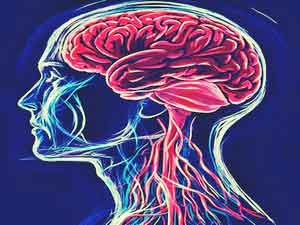Scientists have found a link between increased headaches and hot temperatures for individuals with migraines, saying that as temperatures rise, so do chances for migraine attacks.
Weather change is one of the most common trigger factors for migraine, said Vincent Martin, director of the Headache and Facial Pain Center at the US-based University of Cincinnati.
The study looked at the use of Fremanezumab drug and whether it could prevent headaches caused by high temperatures.
Fremanezumab is administered by injection under the skin and is part of a set of monoclonal antibodies that have hit the market in the past six years to treat migraine in patients.
Researchers cross-referenced 71,030 daily diary records of 660 migraine patients with regional weather data and found that for every temperature increase of 0.12 degrees Celsius, there was a 6 per cent increase in the occurrence of any headache.
However, during the periods of Fremanezumab treatment, the association completely disappeared.
"This study is the first to suggest that migraine-specific therapies that block Calcitonin Gene-Related Peptide (CGRP) may treat weather-associated headaches," said Fred Cohen, a study co-author and assistant professor of medicine at Icahn School of Medicine at Mount Sinai in New York.
If the results are confirmed in future studies, the drug therapy has the potential to help many people with weather-triggered migraine.
Hippocrates, the father of medicine, believed that weather and medicine were intimately linked.
"A couple thousand of years later, we are proving that weather matters in human health," said Al Peterlin, who retired as chief meteorologist at the US Department of Agriculture and co-author of the study.
The findings from the study were set to be presented at the American Headache Society's 66th annual scientific meeting in San Diego, California, over the weekend.








Myanmar's earthquake death toll rises to 3,770
The death toll from a 7.7-magnitude earthquake in Myanmar has risen to 3,770 as of April 28, the state-owned daily The Mirror reported on Tuesday.
Air pollution exposure raises brain stroke risk in older adults: Study
The study showed that elderly males are disproportionately affected by ischemic stroke related to air pollution. Ischemic stroke is a condition resulting from reduced blood supply to specific areas of the brain due to blocked blood vessels. The primary contributor to this burden is PM2.5 from air pollution.
Security forces apprehend 7 militants in Manipur, recover arms and stolen cars
Security forces in Manipur arrested seven militants belonging to different banned outfits from Imphal East and Imphal West districts, officials said on Friday.
Security forces intensify operations in Manipur, 11 insurgents arrested
Eleven insurgents have been arrested in Manipur and arms and ammunition recovered in the past 24 hours, said officials here, adding that top Army officers of the region have met Governor Ajay Kumar Bhalla.
DoNER Ministry facilitate in unlocking Manipur’s growth: Scindia
Union Development of North Eastern Region (DoNER) Minister Jyotiraditya Scindia on Thursday said that he is confident that his ministry would serve as a proactive facilitator in unlocking new opportunities and accelerating Manipur’s growth and development.
National Herald case: Congress protests outside ED offices in northeastern states
Congress leaders claimed that through false allegations, the Enforcement Directorate (ED) under the direction of the Central government filed a chargesheet against the party's Parliamentary Party Chairperson Sonia Gandhi and Leader of Opposition (LoP) Rahul Gandhi, among others.
Seven cops injured during anti-Waqf Act rally in Tripura
At least seven policemen sustained injuries on Saturday during a clash between the security personnel and the agitators who held a protest rally against the recently enacted Waqf (Amendment) Act in northern Tripura’s Kailashahar under Unakoti district.